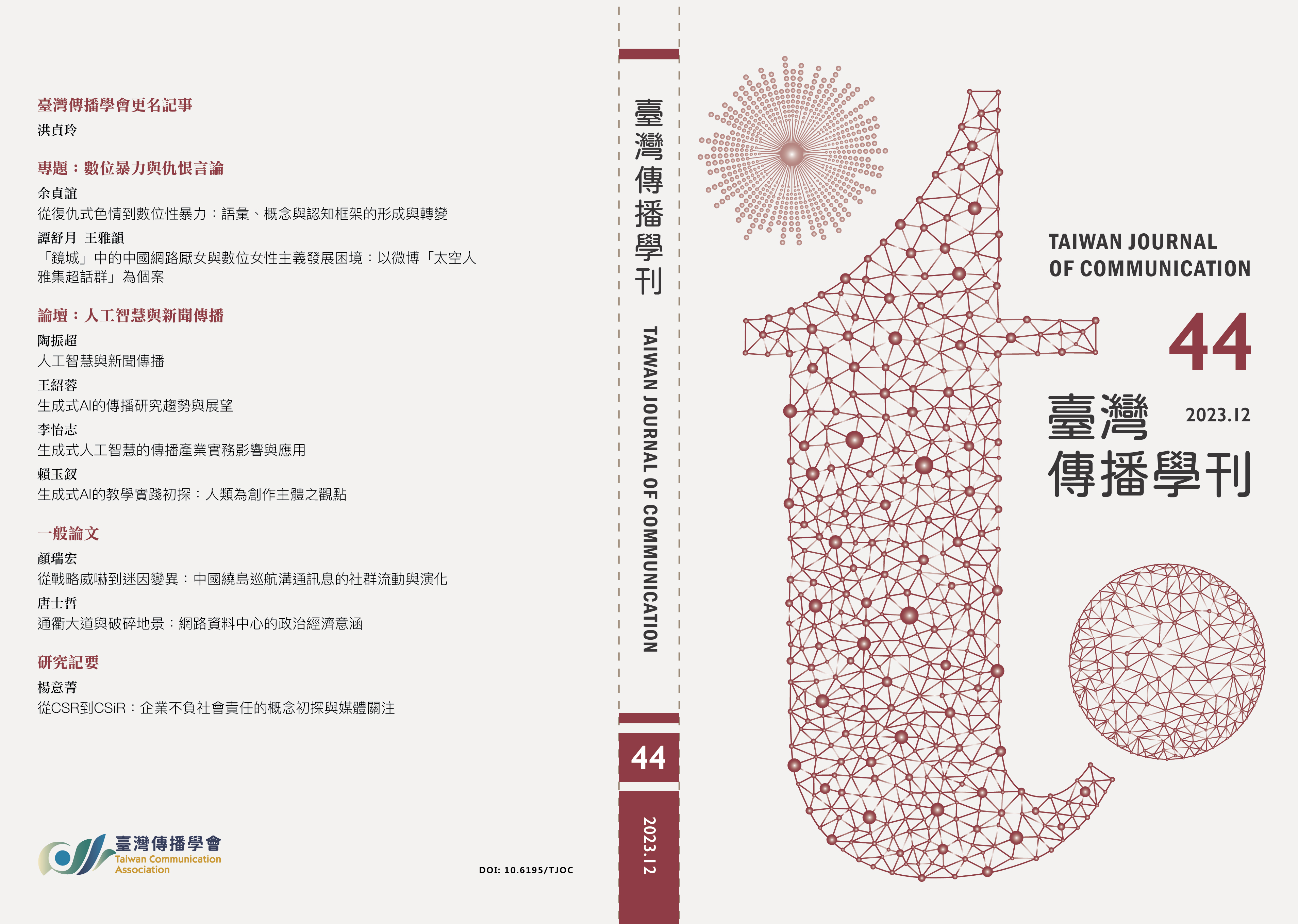 閱覽人數: 645
閱覽人數: 645
December
2023
No. 44
數位暴力與仇恨言論
Digital Violence and Hate Speech頁數:127 - 179
作者(中)
顏瑞宏
作者(英)
Jui-Hung Yen
關鍵詞(中)
社會網絡分析、網路迷因、戰略溝通、機器學習、繞島巡航
關鍵詞(英)
social network analysis, internet memes, strategic communication, machine learning, island patrol
中文摘要
本文應用網路迷因理論,以中國繞島巡航為背景,結合LDA機器學習及社會網絡分析,檢視10,592篇新聞和1,066篇社群貼文,從威嚇主題與社群關注、流通及變異程度的關聯,評估溝通效果。研究發現,臺灣民眾較關注衝突性主題,且更敏感於臺灣認同;主題性粉專則能吸引不同群體的關注及選擇;另溝通效果會受訊息變異影響,存有難以降減的風險,而修改與否的傳播選擇,會因主題認知產生差異。從實踐槪念觀之,唯有認知統合,才有機會確保溝通效果。
英文摘要
In this study, we performed linear discriminant and social network analyses of 10,592 pieces of news and 1,066 social media posts related to island patrol training in China. Our objective was to evaluate the effectiveness of communication strategies and identify the correlations between deterrence subjects, social network dynamics, and meme mutation. The results indicate that conflict is the subject that draws the highest level of attention from Taiwanese individuals, who are sensitive about topics such as national identity. Fan pages covering specific subjects are most appealing to different groups of people. The effectiveness of communication strategies is affected by message mutation, and reducing the risk is difficult. Notably, the effectiveness of communication strategies can only be increased by adjusting the strategies to suit audiences.